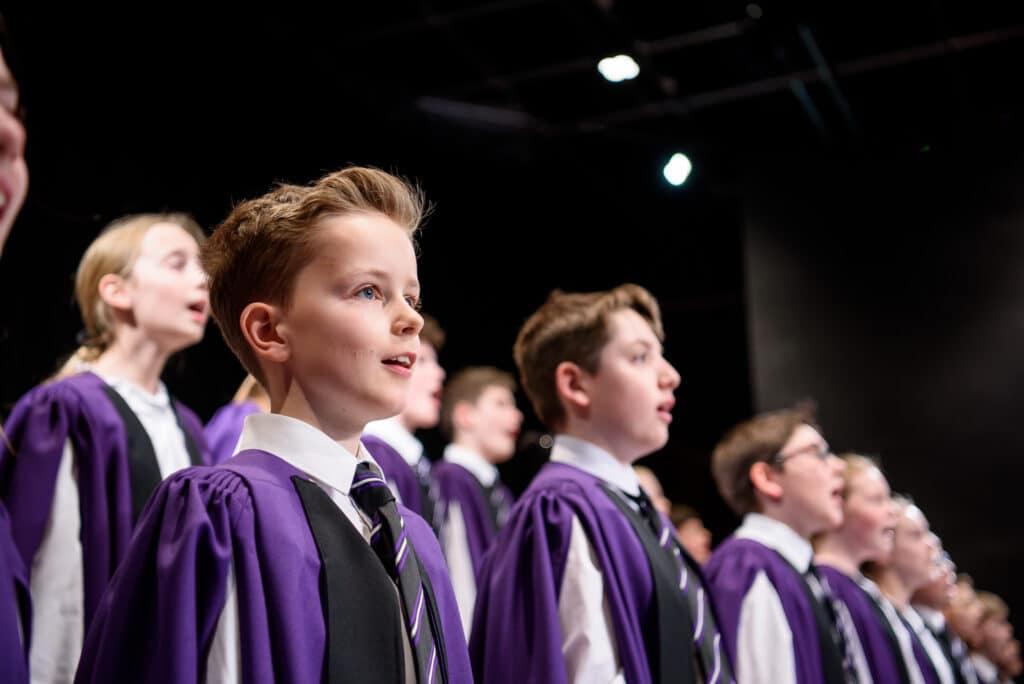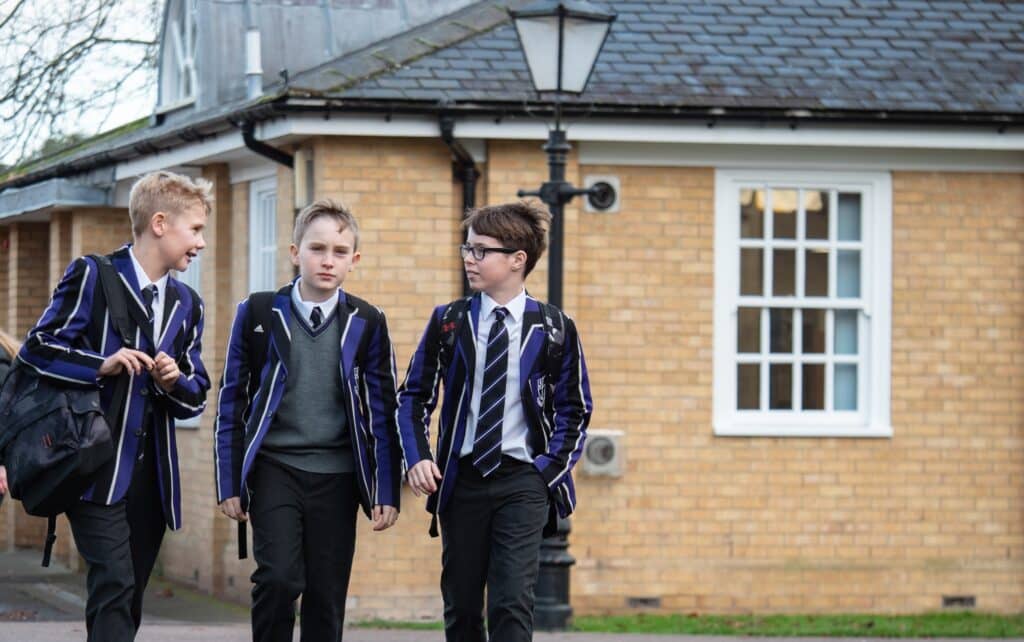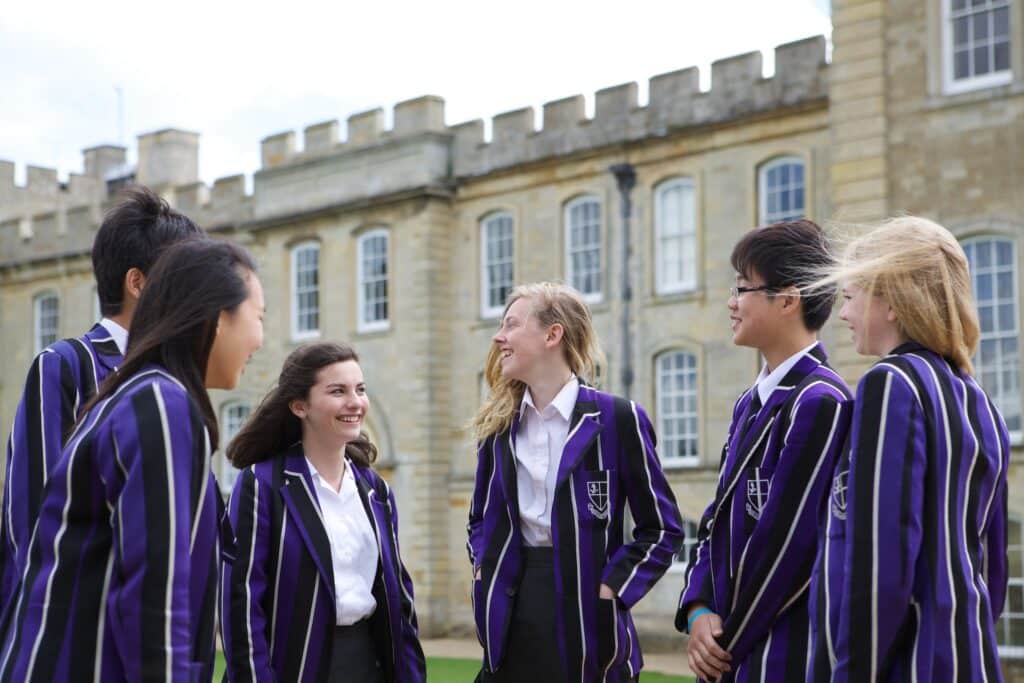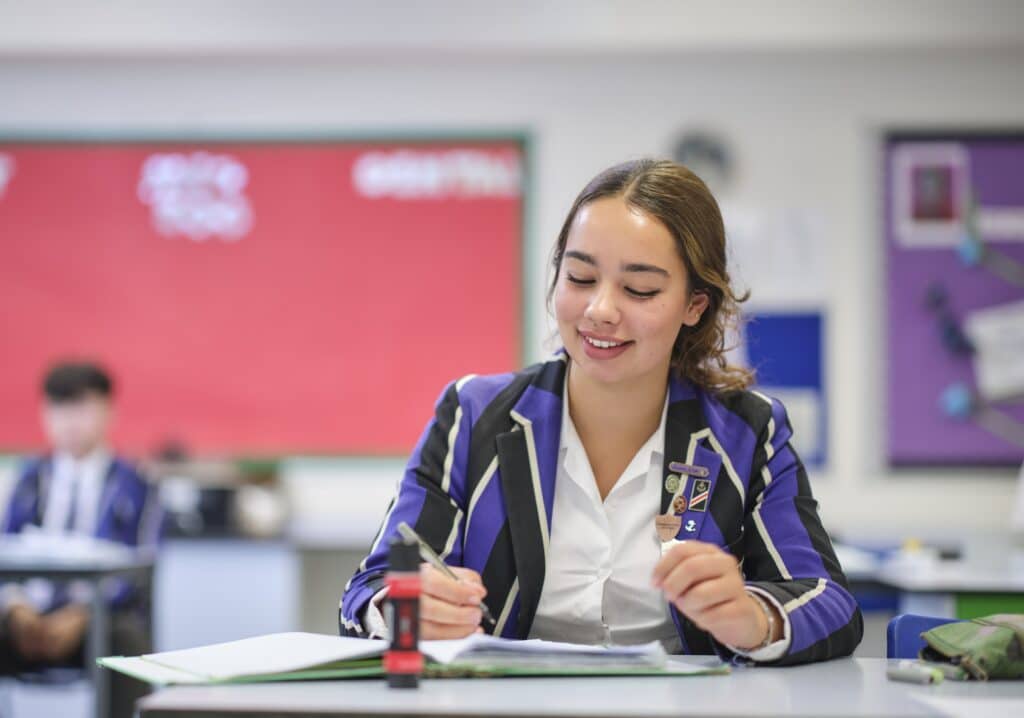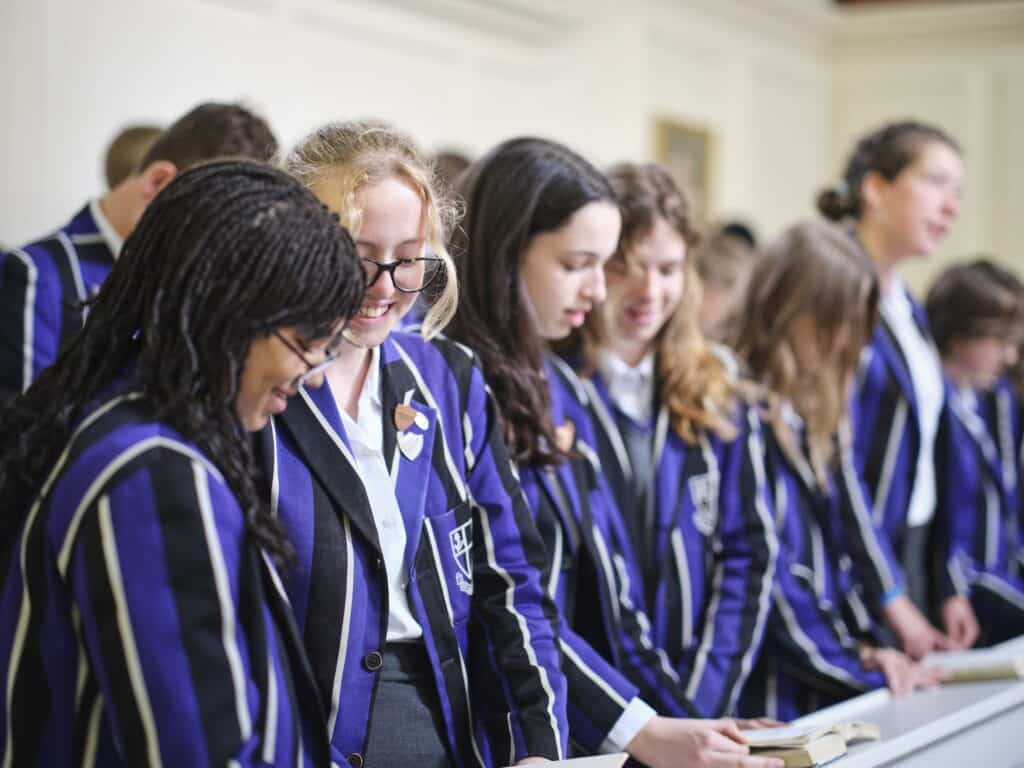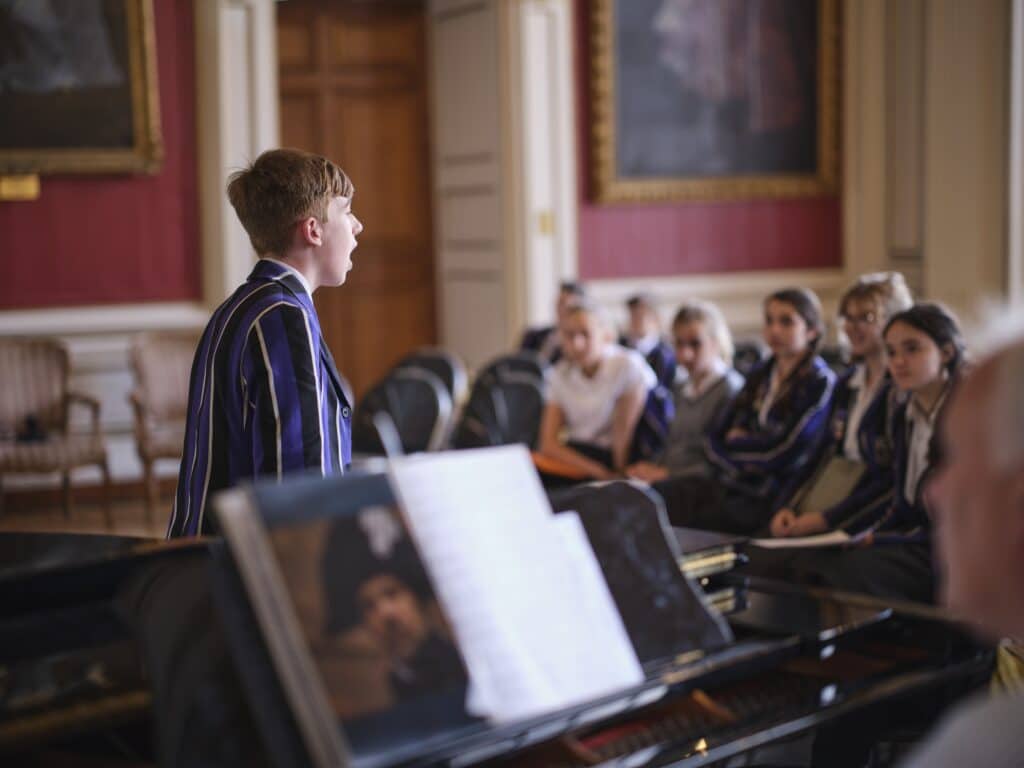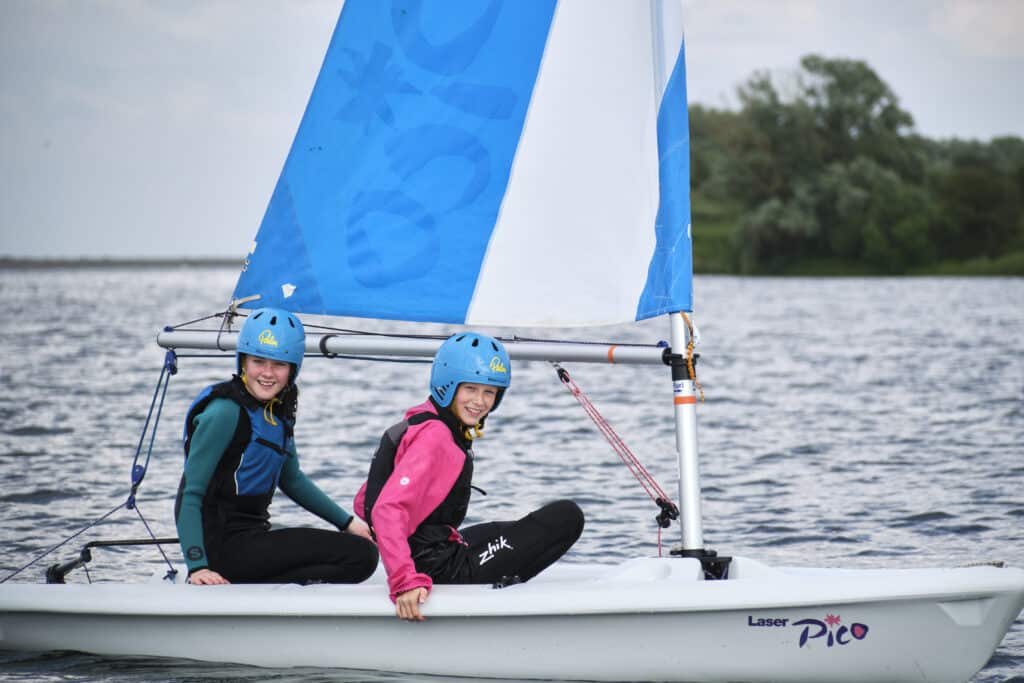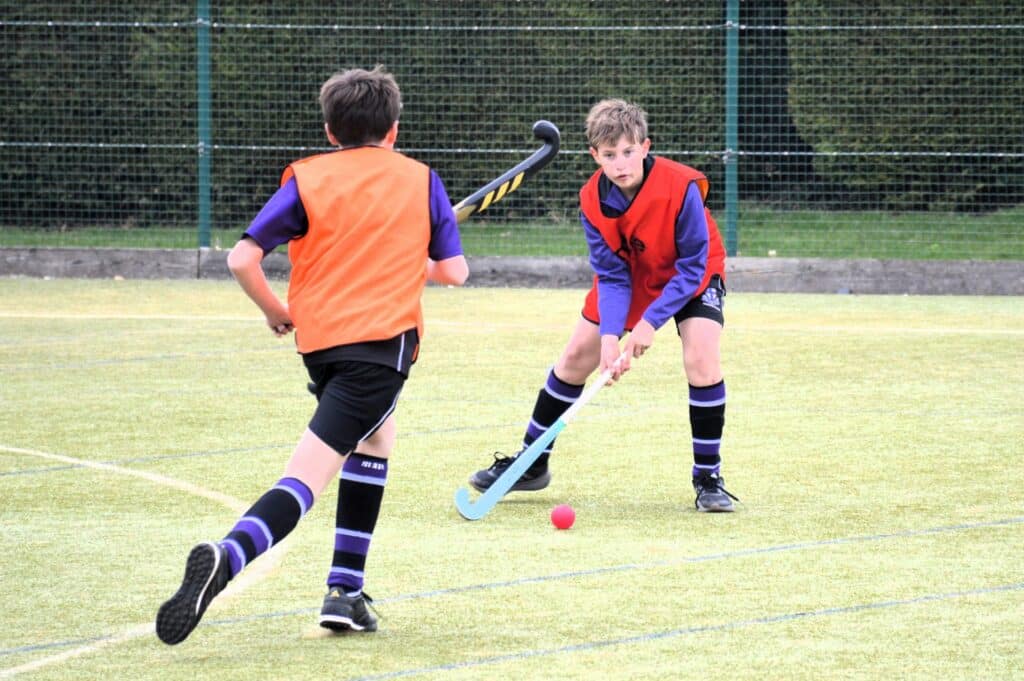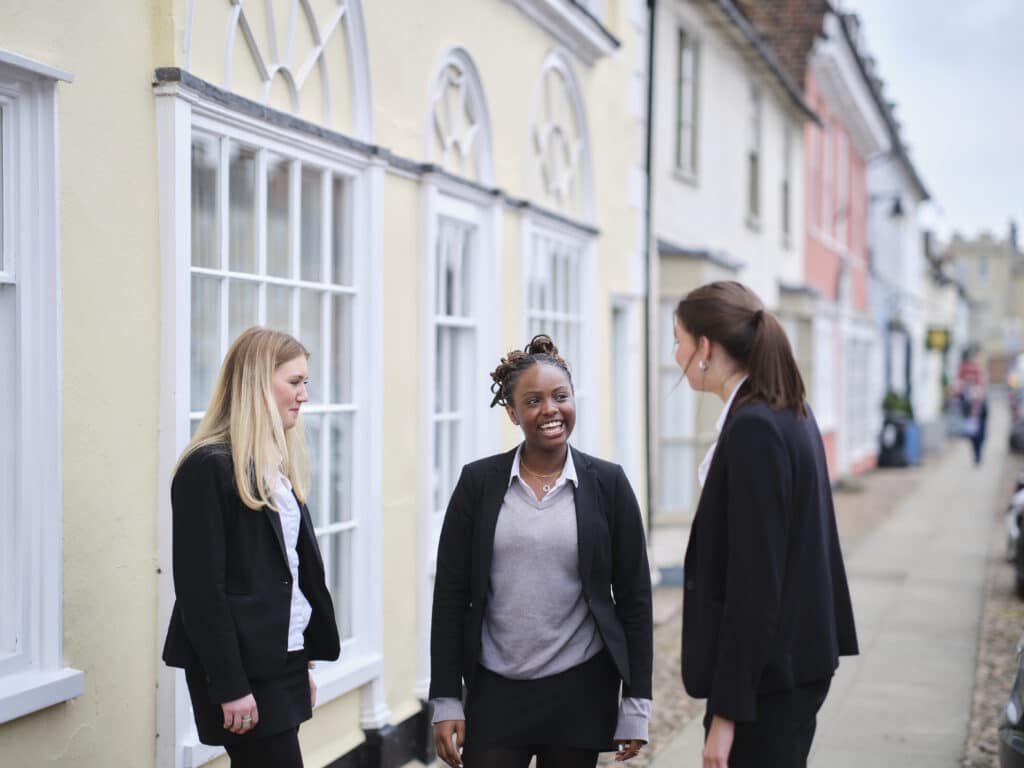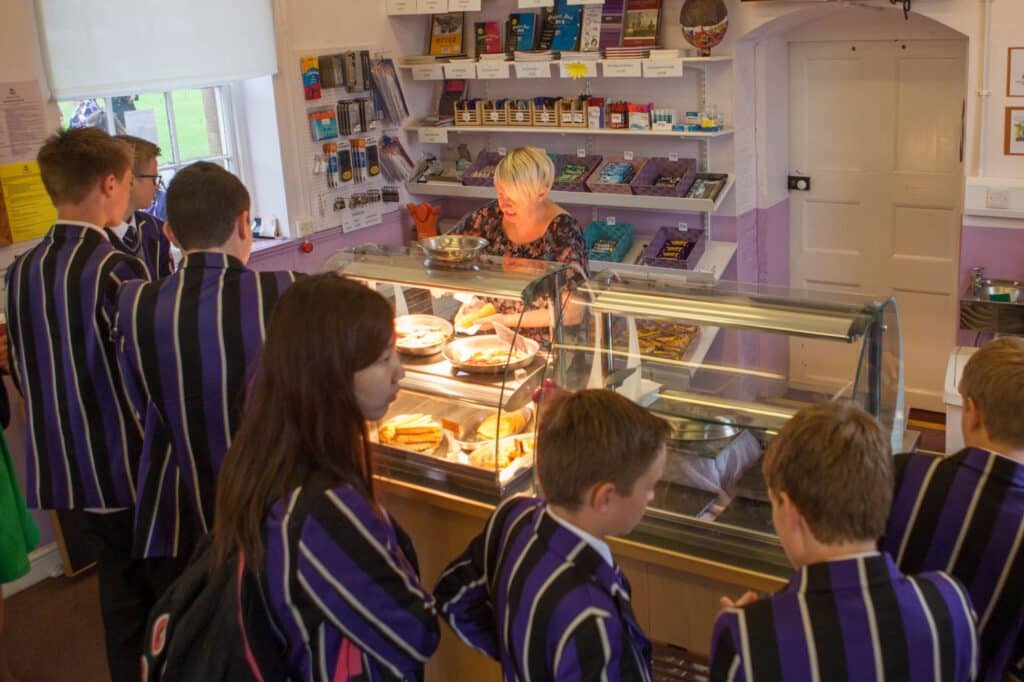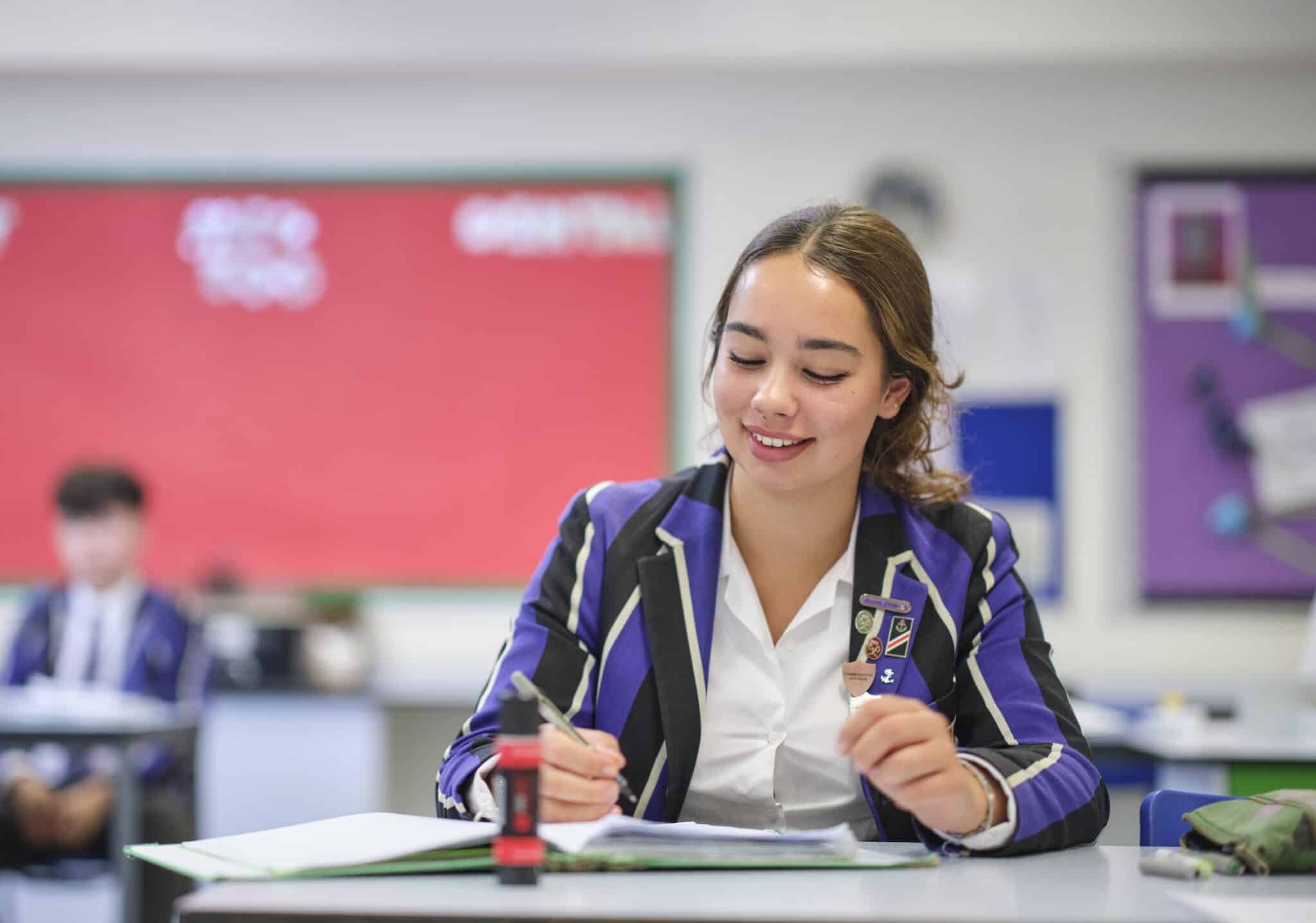
Academic curriculum
First to Third Forms
Pupils follow a broad and balanced curriculum in the First to Third Forms comprising:
- Art
- Biology
- Chemistry
- Design Technology Engineering (DTE)
- Digital Learning
- Drama
- English
- Food and Nutrition
- French
- Games
- Geography
- History
- Mathematics
- Music
- Personal, Social and Health Education (PSHE (including careers and GCSE guidance in the Third Form)
- Philosophy, Religion and Ethics (PRE)
- Physical Education
- Physics
- Spanish
Halfway through the Second Form, pupils opt which two of the three creative subjects (Art, DTE, Food and Nutrition) they wish to study in the Third Form. All first choices are guaranteed but numbers may prevent us from granting all pupils’ second choices.
Fourth and Fifth Forms
The same approach of a broad and balanced curriculum continues in the Fourth and Fifth Forms. GCSE options are made in the spring of the Third Form.
All pupils take GCSEs in English Language, English Literature, Mathematics, at least one foreign language, at least one humanity (Geography, History, PRE), either Double Science or all three sciences, plus choices from a creative/technical subject menu.
In total, pupils take nine GCSEs with some studying for ten, and all continue with non-GCSE PE (Fourth Form only), PSHE and Games, plus the Combined Cadet Force (CCF) or the Community Service Unit (CSU).
Sixth Form
Sixth Form Lower Sixth options are made in the spring term of the Fifth Form.
Students choose three subjects to study for two years at A Level. All Sixth Form students participate in a weekly Games afternoon and opt for CCF, CSU or an extension course.
Lower Sixth pupils take part in our Sixth Form Super Curriculum. Lower and Upper Sixth Formers undertake our ‘Preparing for Citizenship’ course.
The ‘Entering the Sixth Form’ evening for Fifth Form pupils and their parents in the autumn term includes a detailed briefing and booklet on A Level options and Sixth Form life, and the opportunity to discuss subjects with departmental staff.
Homework
We set homework for all age groups throughout the school year and it is an understandable consideration of most parents.
The points below should answer the most common questions. Your child’s tutor should be the initial point of contact if you require further clarification.
What is the purpose of homework?
Homework serves a number of purposes:
- It encourages pupils to develop the habit of working on their own and to learn perseverance and self-discipline.
- It gives pupils the chance to practise the skills that they have learned in the classroom.
- It can offer opportunities for extension and enrichment.
- It contributes to the tutor’s understanding of your child’s progress.
How much homework will my child receive?
Time allocated for homework varies between year groups. The expectation is that pupils should spend a reasonable amount of time on homework each evening and at weekends.
1st & 2nd Form: 30 minutes per subject per homework + 15 minutes reading
3rd Form: 30 minutes per subject per homework + 15 minutes reading or French/Spanish vocab
4th & 5th Form: 30 minutes per subject per homework → 1 – 1 ½ hours per night + 20 minutes study skills/revision/vocab/literacy.
6th Form: Pupils should expect a minimum of three hours directed homework per subject per week. It is expected that most pupils will spend more time than this on activities outside of the classroom to consolidate learning such as reviewing their notes from lessons and generating revision materials (around two hours per subject per week).
How should I assist my child?
You have a positive role to play in homework in terms of encouraging, supporting, and stimulating your child’s academic development. There are a few ways that you can assist:
- Provide suitable working conditions at home, away from distractions such as their mobile phone!
- If your child finds a task difficult resist the temptation to do the work yourself! It is important that you only provide background information and support and do not take ownership of the work away from your child.
- Aim to gradually take a declining role in the supervision of homework so that your child acquires the skills of self- organisation and time management that are vital for public examination success.
If your child finds a piece of homework too difficult, they should work for the allotted time and speak to their tutor. Let their tutor know if there are problems with homework that you cannot resolve.
My child missed a lesson. What happens about the homework set for that night?
My child missed a lesson. What happens about the homework set for that night?
If your child is absent from school or misses lessons due to, for example, a music lesson or sports tournament, it is his/her responsibility to catch up any work missed, including homework. Often lesson material is on Kimbolton Pupil Docs; and tutors are happy to be contacted by email if there are any questions. Late homework must be handed in to the subject tutor, not their tutor.
Feedback to parents
The table below provides an overview of when you can expect feedback from us in the form of reports and parents’ evenings. From the Third Form onwards, pupils accompany their parents to parents’ evenings.
| Year Group | Autumn | Spring | Summer |
|---|---|---|---|
| First | Parents’ evening in-person | Parents’ evening online | Report |
| Second | Parents’ evening online | Report | Parents’ evening in-person |
| Third | Report | Parents’ evening in-person | Parents’ evening online |
| Fourth | Parents’ evening online | Report | Parents’ evening in-person |
| Fifth | Parents’ evening in-person | Parents’ evening in-person Report | |
| Lower Sixth | Parents’ evening online | Report | Parents’ evening in-person |
| Upper Sixth | Parents’ evening in-person Report |
Academic assessments
We also provide regular assessments of pupil progress which are released on Engage for pupil and parents. These give gradings of attitude to learning in class and attainment in each subject, and a homework grade.
A full explanation of the criteria used in awarding assessment grades is sent out in September.
Commendations
Commendations are awarded to pupils in recognition of special effort or attainment and apply to all areas of school life, with the school values in mind. Pupils receive email notifications of any commendations awarded.
Certificates and badges are awarded to pupils once a certain level of House points are achieved.
Commendations also attract House points towards the overall House competition.
Sanctions
Subject tutors can set lunchtime departmental detentions for poor, late or missing work, or if classroom behaviour has fallen below acceptable standards. Tutors and Housemasters/mistresses are informed of these; you will be contacted by the Head of Department or subject tutor if there is a cause for concern over your child’s academic work.
If your child’s work, class behaviour or assessments fall below acceptable standards for multiple departments, his/her tutor may issue a Progress Card. Subject tutors sign these after each lesson and you will be asked to initial them on a daily basis. We find that Progress Cards are a useful way of communicating a child’s daily academic performance and behaviour and assist both school and parent in working together to refocus a child.
Friday lunchtime detentions are awarded to pupils for infringements of school rules and to pupils who have failed to respond to subject department sanctions. They involve a written task and are supervised by a member of the Senior Leadership Team. If a pupil misses a Friday lunchtime detention they will be placed in a Friday after-school detention.
Friday after-school detentions are used for serious offences and override all other activities. Your child’s Housemaster/ mistress or the relevant Head of Department will call you and then send a letter of confirmation about an after-school detention.
Headmaster’s detentions are held on Saturday mornings. These override all other activities and are preceded by an interview with the Headmaster for the pupil. Your child’s Housemaster/mistress will inform you by phone and the Headmaster will write to confirm that your child has been placed in a Saturday detention.
Exclusions (short term and permanent) are used for the most serious cases.
